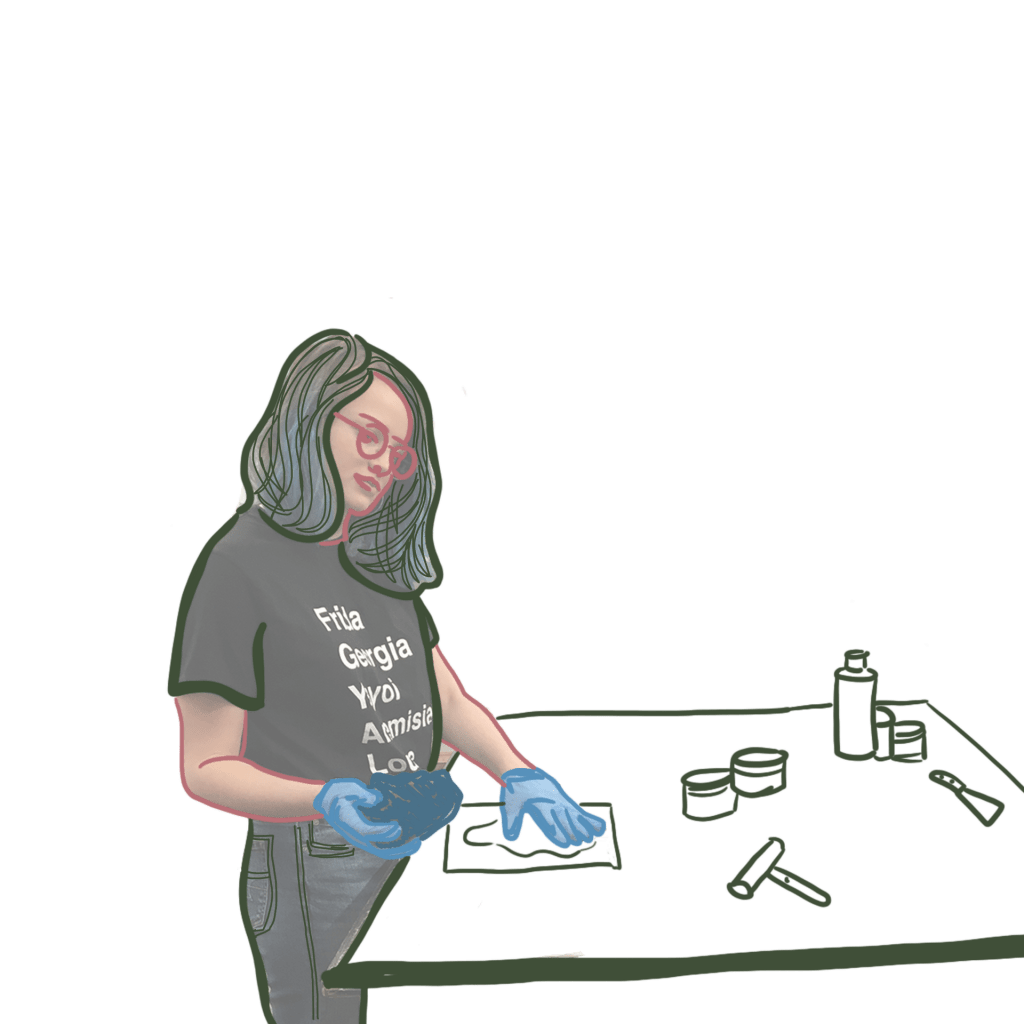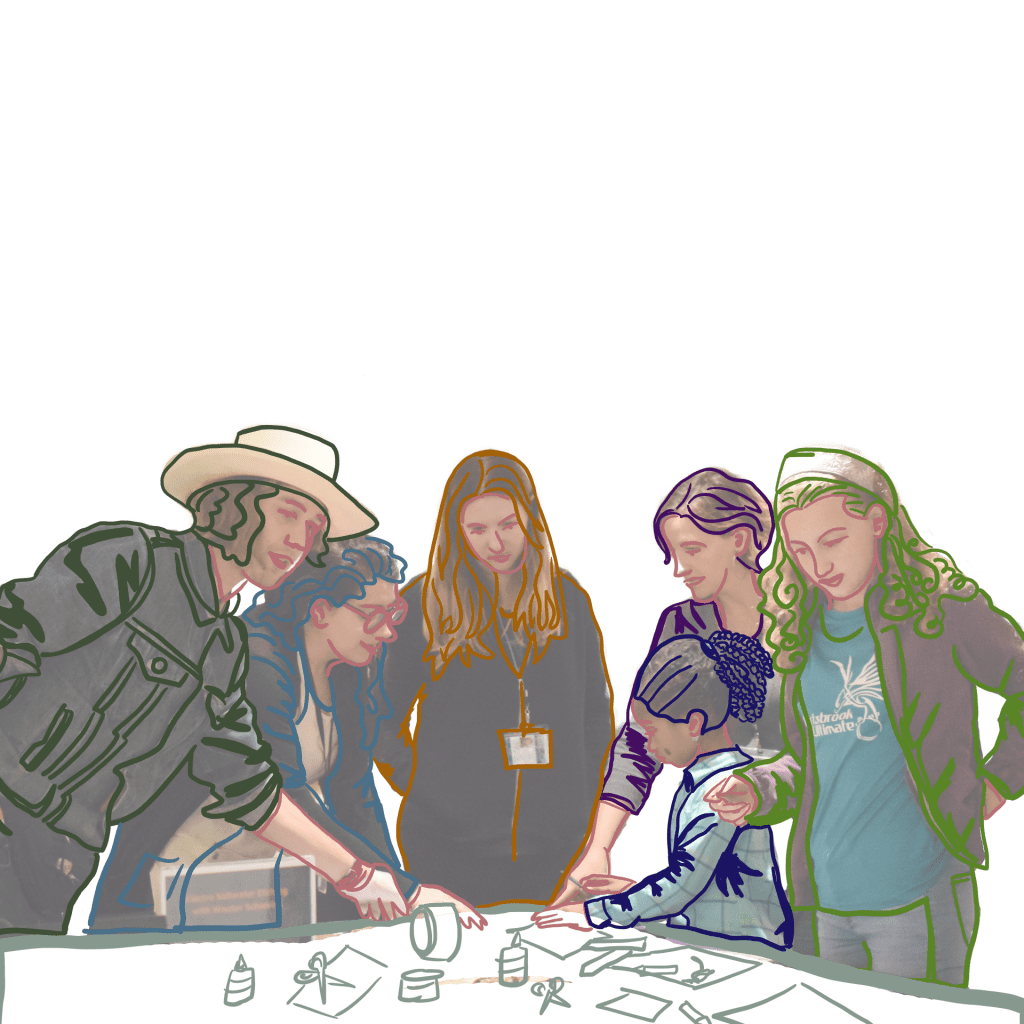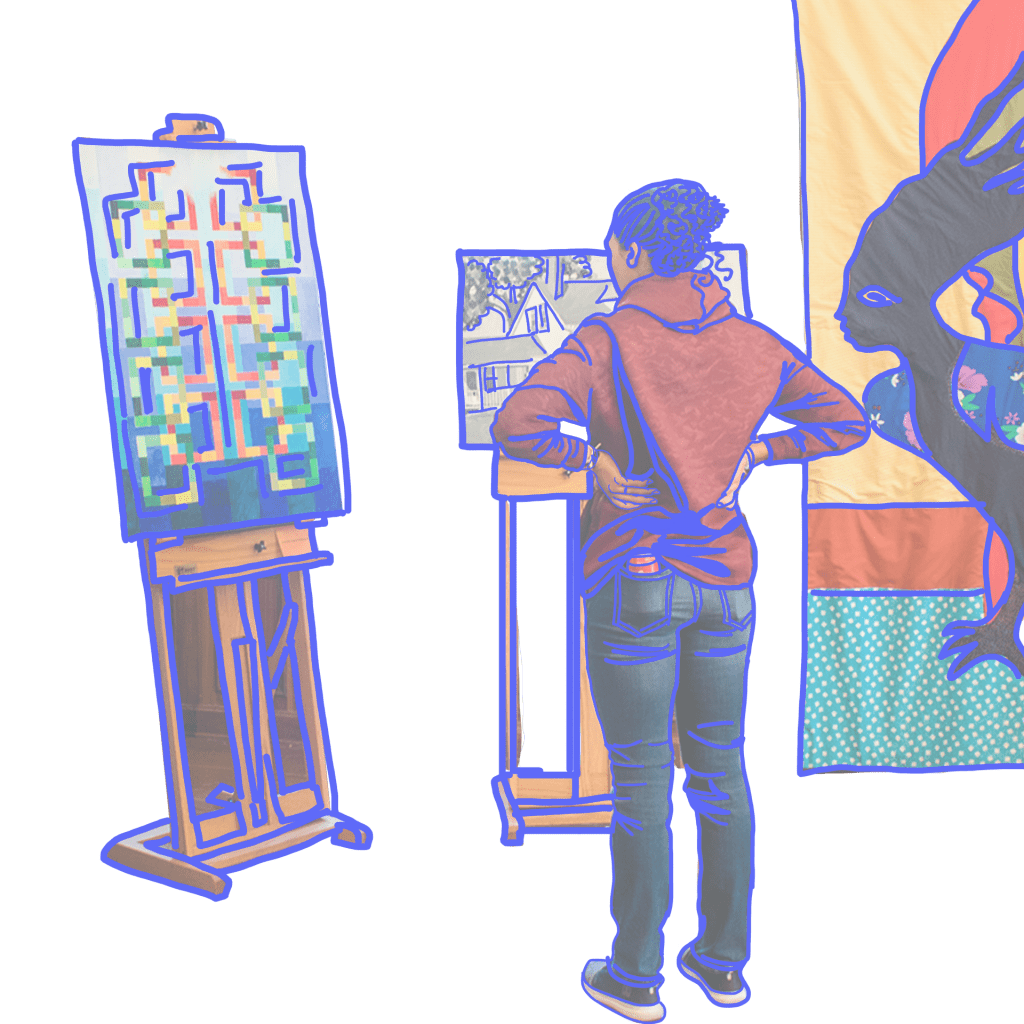EDUCATION AND LEARNING AT THE MEAD
Located on the campus of Amherst College – a 200 year old liberal arts instituion – the Mead Art Museum is home to robust educational programming rooted in three guiding principles:

An interest in process and praxis
As it approaches its 75th year, the Mead is evolving from its roots as a study collection to a site for dynamic and experiential interactions between communities, curricula, and collections. Part of a lean ten person-staff across the museum, the Mead’s four dedicated educators focus on high-impact practices, including cohort internships, collaborative curation, and project-based learning opportunities for Amherst College courses, blending academic instruction with applied and work-engaged learning. Our education programs offer a fertile ground for developing leadership skills in the arts as well as deep engagement to students, faculty, staff, and community partners.
Using the Mead’s diverse collection, we connect to a wide range of curricular and thematic topics, with an emphasis on college coursework, K-12 partnerships, and project-based learning.

Our work is socially and community involved
We convene people across-generations, experiences, and identities through a common interest in art, culture, and stories. Bringing together campus and community members, our programs invite participants to not only learn but contribute, to look and listen deeply, and to share about art, stories, and themselves.

We are curious and self aware about transformation —institutional, personal, social.
Situated within the Amherst College campus, the Mead is located on Nonotuck homeland, and home to diverse indigenous communities today. In acknowledgement of both the material and discursive violence and dispossession of settler colonial societies towards indigenous communities, members of the African diaspora, and other BIPOC groups – past and present – education programs at the Mead strive to embody and advance anti-oppressive pedagogies. We turn to leaders in antiracist education, universal design, and indigenous movements as we actively learn and unlearn as teachers, learners, and residents. Focusing on the longterm goals of institutional change, Mead educators study and practice risk-taking and imperfection. We are inspired by the intense intellectual and social growth of so many of our student partners, and strive to bring that spirit of transformation to all of our programs.

Graphic and blog design by Carolyn Gennari, drawing inspiration from former Amherst educator Orra White Hitchcock’s 19th century environmental drawings. The Hitchcock archives are available at Amherst College Archives and Special Collections.
You must be logged in to post a comment.